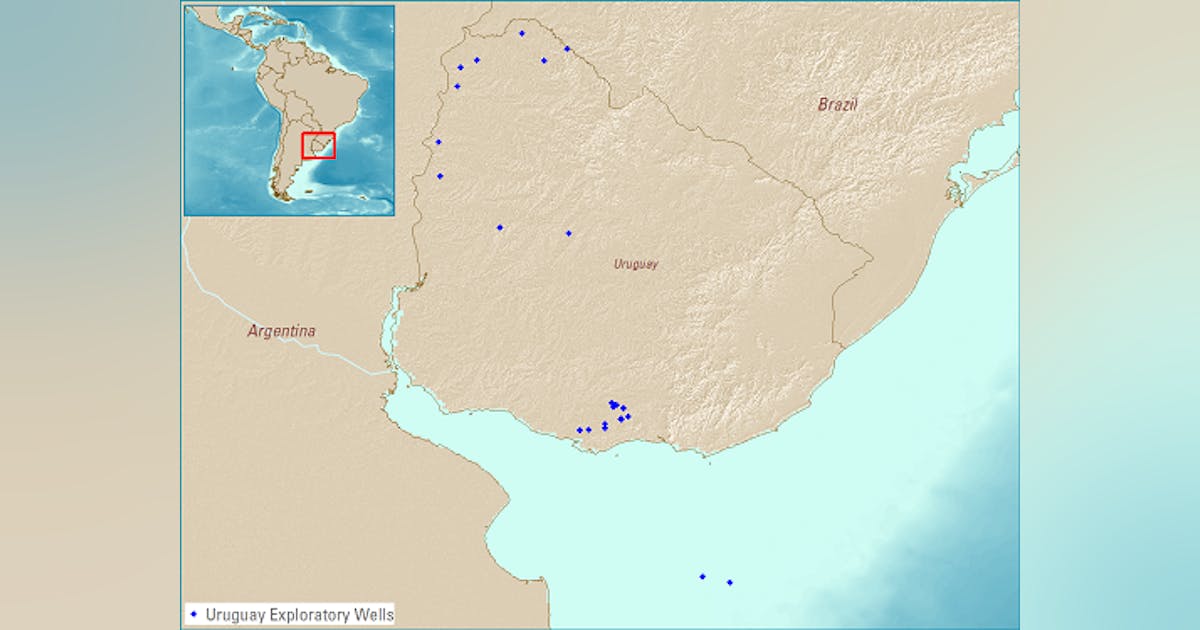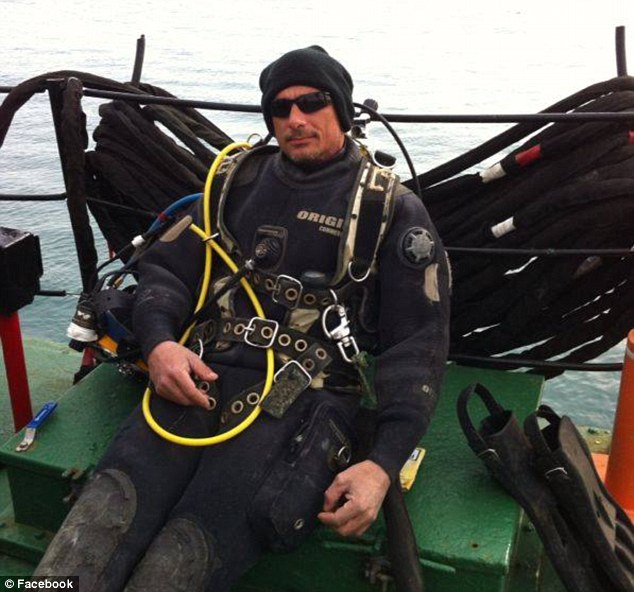Black Gold In Uruguay? Assessing The Viability Of Offshore Drilling

Table of Contents
Geological Potential and Exploration Activity
Uruguay's offshore areas hold significant promise for hydrocarbon discoveries, primarily within its extensive sedimentary basins. Understanding the geological potential is crucial for assessing the viability of Offshore Drilling Uruguay.
Uruguay's Sedimentary Basins
The Pelotas Basin, extending off the Uruguayan coast, is a key area of interest. Its geological formations share similarities with productive basins in neighboring Argentina and Brazil, suggesting a potential for substantial hydrocarbon reserves. While exploration is still in its relatively early stages, initial geological surveys have revealed promising indicators.
- Similar Geological Formations: The presence of similar sedimentary rock formations in neighboring countries with successful offshore drilling operations, like Brazil's Santos Basin, increases the likelihood of finding commercially viable reserves in Uruguay.
- Licensing Rounds and Exploration Permits: Recent licensing rounds by the Uruguayan government have attracted interest from international energy companies, signaling a growing confidence in the country's offshore potential. The awarding of exploration permits indicates a progression towards active drilling operations.
- Estimated Reserves and Economic Impact: Although precise estimates are unavailable at this stage, preliminary assessments hint at potentially substantial reserves. The successful discovery and extraction of these resources could significantly boost Uruguay's GDP and create numerous employment opportunities within the energy sector and related industries.
Technological Advancements and Exploration Techniques
Modern offshore drilling relies on advanced technologies to minimize risks and maximize efficiency. The application of these technologies is paramount for the success of Offshore Drilling Uruguay.
- Improved Accuracy of Reserve Estimations: Seismic surveys, 3D and 4D imaging, and other advanced geophysical techniques provide significantly more accurate estimations of subsurface formations and potential hydrocarbon reserves compared to older methods. This reduces the financial risks associated with exploration and development.
- Environmental Benefits: Advanced drilling techniques and technologies, such as improved well design and containment systems, are designed to minimize the environmental footprint of offshore operations, reducing the potential for spills and other environmental damage.
Economic Viability and Investment
The economic viability of Offshore Drilling Uruguay depends on a careful evaluation of projected returns, investment costs, and the necessary infrastructure.
Projected Returns and Investment Costs
The return on investment for offshore drilling projects is highly variable and dependent on various factors, including the size and quality of the discovered reserves, oil and gas prices, and operational costs. Initial investments are substantial, encompassing exploration activities, rig mobilization, well construction, and the development of necessary infrastructure.
- Comparison with Regional Projects: Comparing the projected costs and returns of offshore drilling in Uruguay with similar projects in the region (e.g., Argentina, Brazil) helps establish benchmarks and assess the competitiveness of Uruguayan projects.
- Government Incentives: The Uruguayan government may implement incentives, such as tax breaks or streamlined regulatory processes, to attract foreign investment in offshore exploration and production. These incentives can significantly influence the economic feasibility of projects.
- Impact on GDP and Employment: Successful offshore drilling can significantly contribute to Uruguay's GDP through increased tax revenues and the creation of high-skilled jobs in engineering, technology, and logistics.
Infrastructure and Logistics
Adequate infrastructure is crucial for supporting offshore drilling operations. Uruguay's existing infrastructure needs assessment and potential development.
- Port Facilities and Logistics: Existing port facilities may require upgrades or expansions to handle the increased volume of equipment and personnel needed for offshore drilling activities. Efficient logistics networks are essential for the timely supply of materials and services.
- Partnerships with International Companies: Collaborations with international energy companies, possessing substantial experience and resources in offshore infrastructure development, are likely necessary for successful project implementation.
Environmental Considerations and Regulatory Framework
Offshore drilling carries inherent environmental risks. Mitigating these risks and establishing a robust regulatory framework is vital for the responsible development of Offshore Drilling Uruguay.
Environmental Impact Assessment
A thorough environmental impact assessment (EIA) is crucial to identify and evaluate potential environmental impacts, including oil spills, habitat disruption, and greenhouse gas emissions.
- Existing Environmental Regulations: Uruguay's environmental regulations concerning offshore drilling need to be comprehensive and effectively enforced to minimize environmental risks.
- Mitigation Strategies: Implementing robust spill response plans, utilizing environmentally friendly technologies, and establishing protected areas can help mitigate the potential negative impacts on marine ecosystems.
Regulatory Landscape and Permitting Process
A clear and efficient regulatory framework is essential for attracting investment and ensuring the responsible conduct of offshore drilling activities.
- Role of Government Agencies: Clearly defined roles and responsibilities for government agencies involved in the oversight of offshore drilling operations are necessary to ensure transparency and accountability.
- Permitting Process Transparency: A transparent and streamlined permitting process can reduce delays and uncertainty for investors, contributing to the overall viability of Offshore Drilling Uruguay.
Conclusion
Uruguay's potential for offshore drilling offers a compelling opportunity for economic growth and energy independence. However, the viability of such ventures hinges on a careful assessment of geological potential, economic factors, environmental risks, and regulatory frameworks. Further research and transparent regulatory processes are essential to ensure responsible and sustainable development of any offshore drilling activities. Investing in thorough environmental impact studies and robust safety protocols is crucial. Therefore, the future of "black gold" in Uruguay depends on a balanced approach that prioritizes both economic gain and environmental protection. Further investigation into the viability of Offshore Drilling Uruguay is crucial for informed decision-making.

Featured Posts
-
 Trumps Middle East Trip Kushners Influence And Advice
May 11, 2025
Trumps Middle East Trip Kushners Influence And Advice
May 11, 2025 -
 Who Will Be The Next Pope Analyzing Potential Cardinals
May 11, 2025
Who Will Be The Next Pope Analyzing Potential Cardinals
May 11, 2025 -
 Announcing The 2025 Astros Foundation College Classic All Tournament Team
May 11, 2025
Announcing The 2025 Astros Foundation College Classic All Tournament Team
May 11, 2025 -
 Salvage Operation Tragedy Diver Killed During Tech Billionaires Yacht Recovery
May 11, 2025
Salvage Operation Tragedy Diver Killed During Tech Billionaires Yacht Recovery
May 11, 2025 -
 Seleccion Colombia En Vivo Sigue El Partido Vs Uruguay Sub 20
May 11, 2025
Seleccion Colombia En Vivo Sigue El Partido Vs Uruguay Sub 20
May 11, 2025
